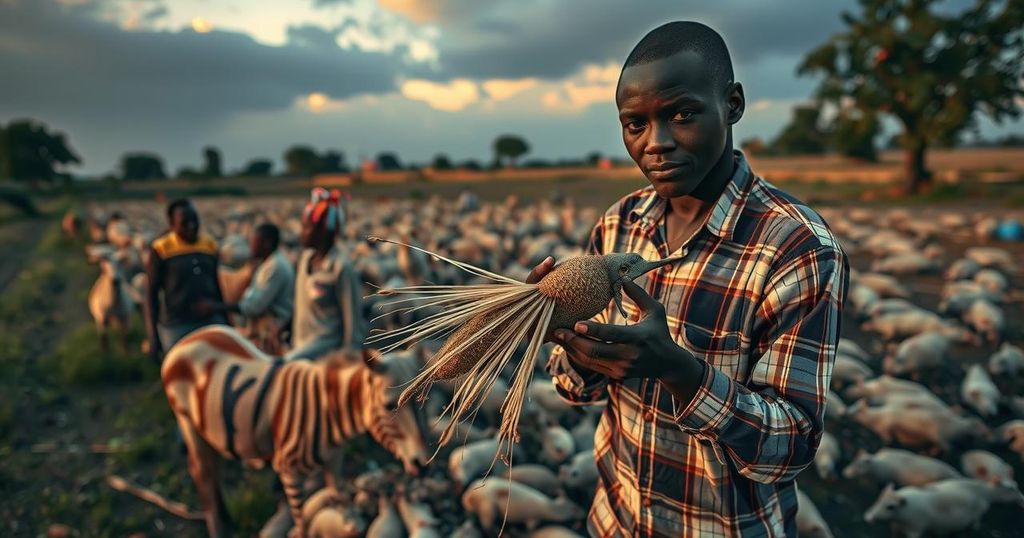Transforming Drought into Opportunity: Zimbabwe Farmers Embrace Maggot Farming

In Zimbabwe, farmers are turning to maggot farming as a response to recurring drought impacts on corn crops. Initially skeptical, farmers like Mari Choumumba now use black soldier fly larvae to create nutritious feed, significantly cutting costs. This practice also aids in waste management and reduces greenhouse gas emissions, representing a sustainable agricultural shift in the face of severe climate challenges.
In Zimbabwe’s southeastern region of Nyangambe, farmers like Mari Choumumba are increasingly turning to maggot farming as a solution to the challenges posed by severe drought. Initially apprehensive, these farmers received guidance from government officials and USAID that educated them on the benefits of cultivating black soldier fly larvae. After a year of adaptation, Choumumba now successfully utilizes these maggots to produce protein-rich feed for her free-range chickens, significantly reducing her feed costs and generating additional income.
This sustainable farming method allows Choumumba to convert organic waste into valuable feed, addressing both agricultural needs and environmental concerns. As more farmers recognize the economic viability of maggot production, participation has surged from 5% to nearly 50%. This transition not only mitigates the financial burden of traditional feed but also contributes to waste management and the reduction of greenhouse gases in Zimbabwe. Through ongoing education and community involvement, maggot farming is emerging as a critical tool for resilience among farmers facing climate change.
The rise of maggot farming in Zimbabwe is a response to the dual crises of drought and food insecurity resulting from changing climate patterns. Traditionally reliant on corn as a staple crop, many farmers have found their livelihoods jeopardized by recurrent droughts which render conventional farming practices less viable. The black soldier fly is uniquely suited to thrive on organic waste, offering an innovative solution by converting discarded food into nutritious livestock feed, thereby addressing both agricultural shortages and waste disposal challenges. This initiative has garnered support from governmental agencies and international aid organizations aiming to enhance food security and economic resilience in affected communities.
In conclusion, maggot farming represents a transformative agricultural practice enabling Zimbabwean farmers to overcome the difficulties imposed by drought and rising food costs. The initiative not only fosters economic opportunities but also promotes sustainable waste management and environmental stewardship. As the community continues to embrace this innovative method, it holds promise for strengthening food systems amid the increasing pressures of climate change.
Original Source: apnews.com








